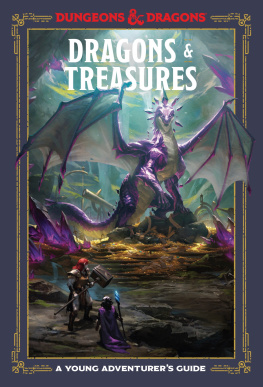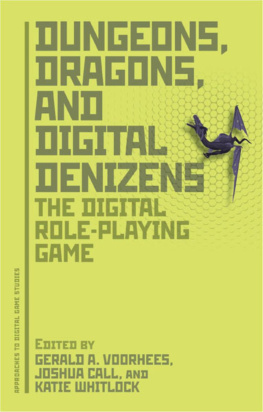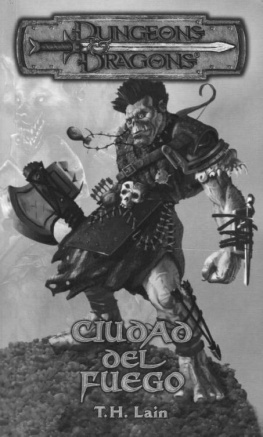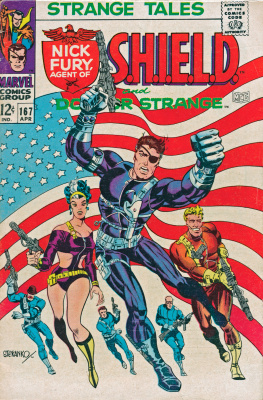Jeffro Johnson - Appendix N: The Literary History of Dungeons & Dragons
Here you can read online Jeffro Johnson - Appendix N: The Literary History of Dungeons & Dragons full text of the book (entire story) in english for free. Download pdf and epub, get meaning, cover and reviews about this ebook. genre: Art. Description of the work, (preface) as well as reviews are available. Best literature library LitArk.com created for fans of good reading and offers a wide selection of genres:
Romance novel
Science fiction
Adventure
Detective
Science
History
Home and family
Prose
Art
Politics
Computer
Non-fiction
Religion
Business
Children
Humor
Choose a favorite category and find really read worthwhile books. Enjoy immersion in the world of imagination, feel the emotions of the characters or learn something new for yourself, make an fascinating discovery.

- Book:Appendix N: The Literary History of Dungeons & Dragons
- Author:
- Genre:
- Rating:3 / 5
- Favourites:Add to favourites
- Your mark:
- 60
- 1
- 2
- 3
- 4
- 5
Appendix N: The Literary History of Dungeons & Dragons: summary, description and annotation
We offer to read an annotation, description, summary or preface (depends on what the author of the book "Appendix N: The Literary History of Dungeons & Dragons" wrote himself). If you haven't found the necessary information about the book — write in the comments, we will try to find it.
Appendix N: The Literary History of Dungeons & Dragons — read online for free the complete book (whole text) full work
Below is the text of the book, divided by pages. System saving the place of the last page read, allows you to conveniently read the book "Appendix N: The Literary History of Dungeons & Dragons" online for free, without having to search again every time where you left off. Put a bookmark, and you can go to the page where you finished reading at any time.
Font size:
Interval:
Bookmark:
Imagine if you had lived in a house for decades, as had your father before you, and grandfather, and you thought you knew all its halls and chambers. Idly, some rainy day, or when the snow has covered all the roads, you take up a lantern and go to see what is stored in those old boxes in the cellar, or where that one small door you never opened before leads.
You pry the door open, and it groans on rusted hinges, and beyond are caves of wonder, heaped with treasure. Here, like a column of fire, stands a strange genii and other spirits bound to serve your family. They are willing to carry you whirling through the air like an autumn leaf, in less time than it takes to gasp in awe, to far and fabled lands beyond the cerulean ocean, to elfish gardens of dangerous glamor, to jeweled mountains, alabaster cities, or perfumed jungles dreaming in the moonlight where ancient fanes to forgotten gods arise. The genii explains that all these things are yours, your inheritance. You have merely to claim them.
Or, to make the image more true to life, let us say that you are exploring the attic, and you find a handcrank connected to an orrery, worked by a silver key you have always worn but never heretofore found to fit any lock. Turning the crank, you move the model of planets on their epicycles back to an earlier position: trumpets blare and lamps blaze, and now parts and opens the dome of what you had, until now, thought was the sky above your house.
You find yourself in the middle of larger heavens than you knew, with gem-bright suns of many colors, constellations rearing, moons and worlds like colored ornaments, and bearded stars in the high depths of space like runners with torches. And there are worlds beyond those worlds.
Here you find your grandfather, in armor of gold with a sword of white fire, still young and strong, and discover him to be a sorcerer prince, or a dark elf, or a warrior angel, whose ichor runs in your veins as well. All this explains that strangeness that has haunted you all your life.
So it is with all readers and fans of science fiction and fantasy, weird tales and amazing stories who have never looked at the older books from which the younger books spring up. These are tales from beyond the shelves you know, realms unexplored yet oddly familiar.
Jeffro Johnson was the man with that silver key to unlock the older heavens or call up the genii you inherited from the past. It started simply enough: he wrote a series of columns taking as his theme the books listed in Appendix N of the older rules for Advanced Dungeons & Dragons written by Gary Gygax.
And the list is nothing exceptional: nearly anyone alive in those days (as I was) and was familiar with fantasy or science fiction reading of the time (as I was) asked to compile a list of the essential books and authors would, no doubt, have issued nearly the same list. The world was smaller in those days, and we who read science fiction were a breed apart, in our own quarter, and a bookish fan could have read or been familiar with all the talented writers in the field, and the many of the untalented.
But like the man who explores his own basement and find a treasure trove, or opens his ceiling and finds the heavens rolled back like a scroll, Jeffro Johnson made an astonishing discovery: the things he had been told about the old books, the old pulps, the old days were misleading, or even false.
Because there was good stuff here!
Like a single spark in the dry leaves, other columnists and other readers began to reread the Appendix N books, and find that sense of wonder some writers seem willfully to wish to extinguish. Some modern books, sadly, are like a Xerox of a Xerox, and the freshness of the original is lost. Some are written in rebellion against ideas and themes in older works, but the nature of the rebellion is hidden from any reader to whom the old worlds are closed.
The genres were not demarked so clearly then, and the guards at the borders separating one kingdom from another were wont to nod and sleep, or wave through the wonder-hungry traveler without checking his papers. Works written in established worlds, Star Trek and Star Wars or Warhammer backgrounds, were utterly unknown.
Now imagine that there are some (they are rare, but they are real) whose mission is to bar you from those books, and see to it that you never enjoy the luxuries of your inheritance, or drink from the winebottles your grandfather laid down in his cellar long ago. All fashion of sneering accusation spills from these Grand Inquisitors, most of it senseless, telling you either that the artistic tastes or the personal flaws of those writers or those times render their work unfit.
Ignore the Thought Police. Read. Decide. Learn to enjoy what you enjoy. Because the heritage belongs to us all. And who knows? You may find the books that your favorite author read as his favorite books when he was young. All these worlds are yours. You have merely to claim them.
The writing of Jack Vance is striking, inventive, and vividly descriptive. His stories are superb, but his books havent always been easy to track down. Consequently, hes often remembered just for inadvertently providing the template for the magic system in Dungeons & Dragons. In that game, a magic-user could spend time studying to learn a set number of spells. When he cast them, he would forget them and then have to study them again. This was termed either Vancian magic or spell memorization depending on who you gamed with. In D&D circles, it was often accepted as just being the way things worked with hardly anyone demanding an in-depth explanation of it. Outside the D&D scene, it was often deemed to be strange, childish, or even unrealistic.
But it turns out that only a fraction of Jack Vances ideas was lifted from The Dying Earth to be grafted onto the first fantasy role-playing game. And few people would be surprised by this oft-quoted passage:
The tomes which held Turjans sorcery lay on the long table of black steel or were thrust helter-skelter into shelves. These were volumes compiled by many wizards of the past, untidy folios collected by the Sage, leather-bound librams setting forth the syllables of a hundred powerful spells, so cogent that Turjans brain could know but four at a time. What dangers he might meet he could not know, so he selected three spells of general application: the Excellent Prismatic Spray, Phandaals Mantal of Stealth, and the Spell of the Slow Hour.
This one, however, is an entirely different matter:
At one time a thousand or more runes, spells, incantations, curses, and sorceries had been known. The reach of grand MotholamAscolais, the Idle of Kauchique, Almery to the South, the Land of the Falling Wall to the Eastswarmed with sorcerers of every description, of whom the chief was the Arch-Necromancer Phandaal. A hundred spells Phandaal personally had formulatedthough rumor said that demons whispered at his ear when he wrought magic. Pontecilla the Pious, then ruler of Grand Motholam, put Phandaal to torment, and after a terrible night, he killed Phandaal and outlawed sorcery throughout the land. The wizards of Grand Motholam fled like beetles under a strong light; the lore was dispersed and forgotten, until now, at this dim time, with the sun dark, wilderness obscuring Ascolais, and the white city Kaiin half in ruins, only a few more than a hundred spells remained to the knowledge of man. Of these, Mazirian had access to seventy-three, and gradually, by strategem and negotiation, was securing the others.
Font size:
Interval:
Bookmark:
Similar books «Appendix N: The Literary History of Dungeons & Dragons»
Look at similar books to Appendix N: The Literary History of Dungeons & Dragons. We have selected literature similar in name and meaning in the hope of providing readers with more options to find new, interesting, not yet read works.
Discussion, reviews of the book Appendix N: The Literary History of Dungeons & Dragons and just readers' own opinions. Leave your comments, write what you think about the work, its meaning or the main characters. Specify what exactly you liked and what you didn't like, and why you think so.




